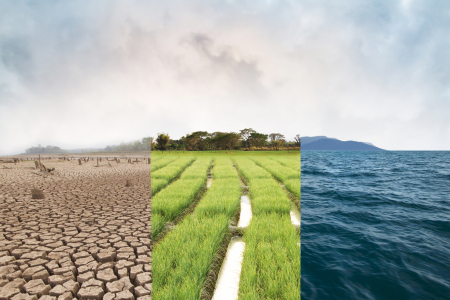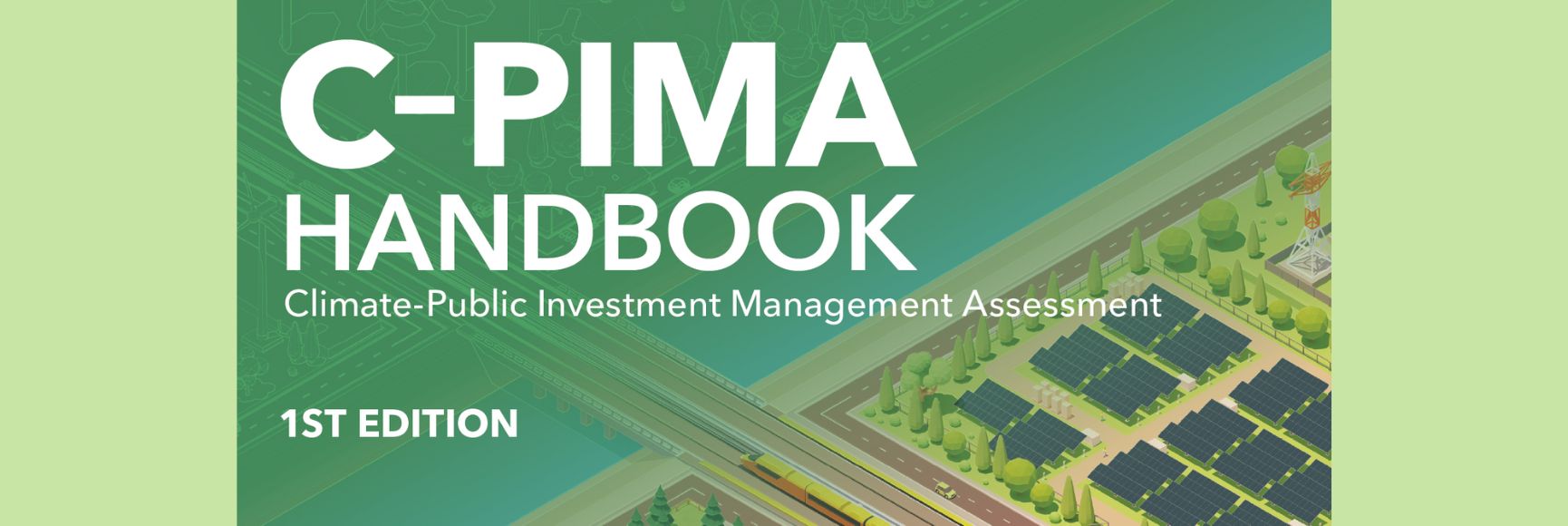
Posted by Felipe Bardella and Moulay El Omari[1]
Unlike many other environmental challenges, climate change is uniquely global with impacts that are felt across all sectors and social groups. Leaders, policy makers and other non-state actors around the world have placed climate change at the center of the international agenda and have been calling for concrete commitments under the three pillars of the 2015 Paris Agreement: mitigation, adaptation and financial commitments.
As the COVID-19 recovery dawns around the world, the recent Climate Adaptation Summit held in January 2021 sheds light on how to realize the reforms and transitional steps required for a climate-resilient world. The IMF’s Managing Director, Kristalina Georgieva has emphasized that “climate resilience is a critical priority and this is why we (IMF) place it at the heart of what we (IMF) do”, now and in the years to come.
The Fiscal Affairs Department (FAD) at the IMF has been working since the 2015 Paris Agreement on tools, analytical studies and capacity development activities to support member countries in adapting to and mitigating natural disaster risks and climate change impacts. These initiatives include fiscal risks assessments, infrastructure governance assessments, public investment management – including a Public Investment Management Assessment Climate Change (PIMA-CC) tool - and green budgeting.
In February 2021, the Fund’s Regional Technical Assistance Center for Southern Africa organized jointly with FAD a virtual regional workshop entitled “Building Resilience to Natural Disasters and Climate Change in Africa and West Indian Ocean Region”. The workshop focused on strengthening countries’ capacity in adapting to, managing, and mitigating risks from natural disasters in general, and from climate change especially.
The workshop revolved around two main themes. The first theme was the management of macro-fiscal risks from climate change and natural disasters (including Climate Change Policy Assessments, climate investment and financing for green recovery, and country cases of natural disaster management). The second covered the role of public financial management (PFM) in building resilience and integrating climate in budget decisions, including PFM tools to address climate and disaster risks, climate/green budgeting strategy, public investment to support green infrastructure, and country experiences and good practices.
The workshop provided a platform for participants from 14 countries[2] to share and discuss knowledge and expertise provided by a line-up of 22 speakers from the IMF, the United Nations, the Caribbean and Pacific regions, and the Southern-Africa and the West Indian Ocean regions.
The main outcomes from this workshop were as follows:
- There was broad consensus on the urgency of tackling climate change and natural disasters to manage the macro-critical risks facing countries, to develop appropriate policy responses, and to put in place PFM measures to help implement these policies.
- Speakers from countries most prone to climate change in Southern-Africa such as Mozambique, Mauritius and Madagascar shared their experiences regarding the management of massive disasters (Cyclones Idai and Kenneth). The delegate from South Africa presented an ambitious set of reforms currently being implemented, including a carbon-tax and the reduction of subsidies on fossil fuels.
- Officials from the Caribbean region (Dominica and the Turks and Caicos Islands) shared the experiences of managing natural disasters over the past decade. They highlighted the need to put in place sound fiscal policies and PFM measures to quickly respond to such disasters. These measures include building fiscal buffers, public and private insurance arrangements, financial resilience, appropriate legal frameworks, and resilient infrastructure.
- Officials from Samoa focused on the macro-economic impact of climate change and natural disasters (Tsunami 2009 and Cyclone Evan 2012) and the PFM measures that were put in place. These measures included investing in resilient infrastructure, revising the building code, a disaster management strategy, and self-insurance policies.
- Countries asked for more support, capacity development, knowledge sharing and learning activities to support operationalizing their Intended Nationally Determined Contributions (INDCs). There was particular interest in topics such as risk insurance, climate change dashboards (as announced by the IMF’s Managing Director earlier this year), risk management and other toolkits, analytical studies, and financial instruments.
- Presentations on green budgeting and mainstreaming climate change in the budget process also elicited widespread interest.
This workshop was the first of a series of similar events that the IMF plans to deliver in sub-Saharan Africa.
[1] Felipe Bardella is a Senior Economist at the IMF’s Fiscal Affairs Department. Moulay El Omari is the Resident PFM Advisor at the Fund’s Regional Technical Assistance Center for Southern Africa (AFRITAC-South).
[2] Angola, Botswana, Kenya, Lesotho, Madagascar, Malawi, Mauritius, Mozambique, Rwanda, Uganda, Seychelles, South-Africa, Zambia, and Zimbabwe.
Note: The posts on the IMF PFM Blog should not be reported as representing the views of the IMF. The views expressed are those of the authors and do not necessarily represent those of the IMF or IMF policy.





